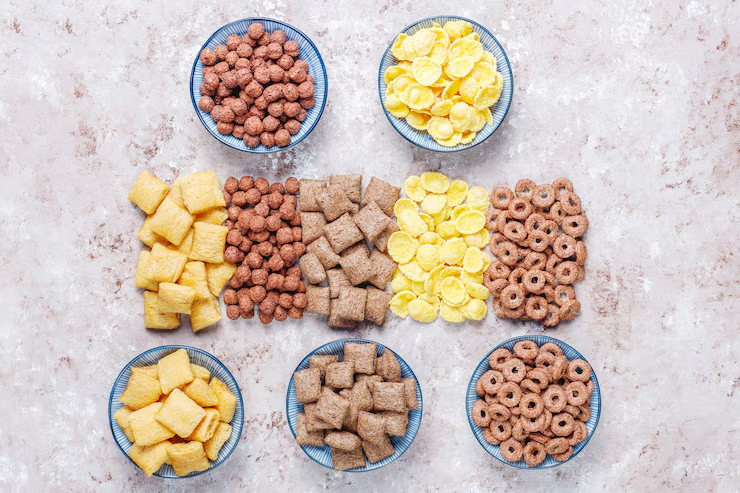Chewy Dog Food: The Best Choice for Your Pup’s Health and Happiness

Chewy Dog Food is one of the best ways to ensure your pet is getting a tasty and nutritious meal every time. It’s packed with the essential nutrients that dogs need for healthy bones, shiny coats, and strong muscles. Chewy dog food can also be easier for your dog to chew and digest, especially for puppies or older dogs who might have sensitive teeth.
When choosing chewy dog food, it’s important to consider the ingredients that will benefit your dog the most. Some foods are made with high-quality meat, vegetables, and other natural ingredients, making them a great choice for providing your dog with the best nutrition. Let’s dive into why chewy dog food might be the right option for your furry friend.
What is Chewy Dog Food and Why Should You Choose It?
Chewy dog food is food that comes in soft, chewy pieces, making it easy for dogs to eat. It’s often made from high-quality ingredients that are healthy for your pet. Many owners choose chewy dog food because it helps dogs eat easily, especially if they have dental problems or sensitive teeth. This food can be packed with nutrients that support your dog’s overall health, making it a great choice for both puppies and adult dogs.
One of the biggest reasons to choose chewy dog food is its texture. It’s gentle on your dog’s teeth and gums, unlike hard kibble that can be tough for older dogs or small puppies. Chewy dog food is also easy to digest, which helps your dog feel full and satisfied without discomfort.
By choosing the right chewy food, you can also help your dog maintain a healthy coat and strong bones. Many brands offer food made with real meat, vegetables, and other natural ingredients, ensuring your dog gets the best nutrition possible.
The Health Benefits of Chewy Dog Food for Your Pup
Chewy dog food has several health benefits for your furry friend. First, it’s great for improving digestion. Soft food is easier for your dog’s stomach to break down, especially if they have a sensitive digestive system. This helps prevent issues like bloating or stomach pain that can come from eating harder foods.
- Better Digestion: Soft pieces are easier to chew and swallow, which helps with digestion.
- Nutrient-Rich: High-quality ingredients like meat and vegetables provide vitamins and minerals that keep your dog healthy.
- Hydration: Some chewy dog foods are wet or moist, helping your dog stay hydrated throughout the day.
Another benefit of chewy dog food is that it’s often richer in protein, which is essential for strong muscles and energy. When your dog gets the right nutrients, they’ll feel more active and happier. Healthy food choices, like chewy food, can help your dog maintain an ideal weight and prevent obesity.
How Chewy Dog Food Supports Better Digestion for Dogs
Chewy dog food is known for helping with digestion, which is especially important for older dogs or dogs with stomach sensitivities. The softer texture of this food makes it easy for your dog to chew and swallow, which reduces the chance of digestive issues like indigestion or bloating.
Some chewy dog foods are specially designed with probiotics that help maintain a healthy gut. Probiotics are good bacteria that help your dog’s stomach process food properly. This can help your dog stay regular and avoid stomach upset.
- Smoother Digestion: Soft food is easier on your dog’s stomach and intestines.
- Probiotic Benefits: Probiotics in some foods help balance your dog’s gut health.
- Avoid Stomach Problems: Chewy food is gentler on your dog’s digestive system, which reduces discomfort.
If your dog has trouble with hard kibble, chewy food can provide relief. It’s an easy way to help your dog enjoy their meals without worrying about digestion problems.
What to Look for in High-Quality Chewy Dog Food
When choosing the best chewy dog food, it’s important to look for certain key ingredients. High-quality chewy dog food should contain real meat as the first ingredient, such as chicken, beef, or lamb. Meat is an important source of protein that supports your dog’s muscles and overall health.
- Real Meat: Look for chicken, beef, or lamb as the first ingredient.
- Healthy Grains: Grains like rice and oats are great for your dog’s energy.
- No Artificial Additives: Avoid foods with too many artificial flavors or preservatives.
Also, make sure the chewy dog food has a good balance of fats, carbohydrates, and fiber. This balance is necessary for energy, healthy skin, and digestion. Avoid foods with too much filler like corn or soy, which don’t provide much nutritional value.
The Best Types of Chewy Dog Food for Different Dog Breeds

Every dog is different, so it’s important to choose chewy dog food based on your pet’s breed and size. Larger breeds may need a food that helps support their joints and bones, while smaller breeds may require something that’s easier to chew and digest.
- For Large Breeds: Choose chewy food with extra protein and joint support.
- For Small Breeds: Look for smaller, softer pieces that are easy to chew.
- For Puppies: Puppy food should be rich in nutrients to support growth.
Chewy dog food made for specific breeds can provide extra health benefits, like promoting shiny coats or stronger bones. It’s a good idea to choose a food that’s designed for your dog’s unique needs. This ensures they’re getting all the nutrients they need to stay healthy.
Is Chewy Dog Food Suitable for Puppies and Senior Dogs?
Yes, chewy dog food is perfect for both puppies and senior dogs. For puppies, it’s important that their food is soft enough to chew, yet packed with nutrients to support growth. Soft food also makes it easier for puppies to transition from nursing to solid food.
- Puppy Food: Soft, nutrient-dense food supports growth and development.
- Senior Dog Food: Soft food is easy on their teeth and promotes better digestion.
For older dogs, chewy dog food can be much gentler on their teeth and gums. Senior dogs often have dental issues, so switching to soft food can make mealtime easier and more comfortable. It’s also easier for them to digest, which can help avoid stomach upset.
Chewy Dog Food vs. Crunchy: Which is Better for Your Dog’s Health?
When deciding between chewy dog food and crunchy kibble, it all depends on your dog’s needs. Crunchy food can help clean teeth, but chewy dog food is easier to digest, especially for dogs with sensitive stomachs.
- Chewy Dog Food: Easier to chew, better for digestion, and gentle on teeth.
- Crunchy Dog Food: Good for teeth but harder to digest for some dogs.
Chewy food is often more suitable for puppies and senior dogs. However, crunchy kibble can still be a good choice for healthy adult dogs with no digestive issues. It’s important to consider your dog’s age, size, and health condition when making the choice.
How to Make Sure Your Dog Enjoys Every Bite of Chewy Dog Food
Making sure your dog enjoys every bite of their chewy dog food is simple! The key is to serve them food that smells good and tastes even better. Dogs are attracted to food with strong scents, so finding a brand that’s both tasty and nutritious is a win-win.
- Choose Tasty Flavors: Dogs love chicken, beef, and lamb.
- Proper Storage: Store your dog’s food properly to keep it fresh.
- Add Toppings: You can add some wet food or dog-safe broth to make the food more exciting.
Serving the food at the right temperature is also important. Some dogs prefer their food warm, so you can slightly heat it in the microwave for a few seconds. This enhances the smell and makes it more appealing to your dog.
Understanding the Ingredients in Chewy Dog Food: What’s Best for Your Dog?
When choosing chewy dog food, it’s important to look closely at the ingredients. High-quality food should include real meat, vegetables, and healthy fats. Avoid food with too many fillers or artificial ingredients.
- Look for Real Meat First: This provides the protein your dog needs.
- Whole Grains and Vegetables: These offer extra vitamins and minerals.
- No Artificial Preservatives: Choose natural ingredients for the best health benefits.
By checking the ingredients, you can ensure your dog is getting a healthy, well-rounded meal. Always read labels to know what’s inside and make an informed decision.
How to Transition Your Dog to Chewy Dog Food Without Upsetting Their Stomach

When switching your dog to a new type of food, like chewy dog food, it’s important to do it gradually. Sudden changes in diet can upset your dog’s stomach, so start by mixing a small amount of the new food with their old food. Gradually increase the amount of new food over a week until your dog is fully switched.
- Start Slowly: Mix a little new food with the old food to avoid stomach upset.
- Watch for Reactions: If your dog seems uncomfortable, slow down the transition.
- Stick to the Plan: Consistency helps your dog adjust to their new food.
By making the transition slow and steady, you can ensure your dog will enjoy their new food without any digestive issues.
Conclusion
In conclusion, chewy dog food is a great option for your dog, whether they’re a puppy or a senior. It’s soft, easy to chew, and filled with nutrients that help your dog stay healthy and happy. Choosing the right chewy food can improve your dog’s digestion, keep their coat shiny, and support their bones and muscles. Plus, it’s an excellent choice for dogs with sensitive teeth or older dogs who might have trouble with hard kibble.
Remember, every dog is different, so it’s important to choose the best chewy dog food based on your dog’s age, breed, and health needs. By picking the right food and transitioning carefully, you can give your dog a meal that’s not only delicious but also beneficial for their overall well-being.
FAQs
Q: What is chewy dog food made of?
A: Chewy dog food is made from high-quality meat, vegetables, grains, and sometimes added nutrients like vitamins and minerals. The food is soft and easy for dogs to chew.
Q: Can chewy dog food help with my dog’s digestion?
A: Yes! Chewy dog food is easier to digest than crunchy kibble, especially for dogs with sensitive stomachs. It helps avoid stomach issues like bloating and indigestion.
Q: Is chewy dog food good for puppies?
A: Absolutely! Chewy dog food is perfect for puppies because it’s soft and easy to chew, helping them transition from nursing to solid food.
Q: How do I transition my dog to chewy dog food?
A: Slowly mix the new chewy food with your dog’s current food. Gradually increase the amount of new food over a week to help prevent stomach upset.
Q: Can chewy dog food help senior dogs with dental issues?
A: Yes, chewy dog food is gentler on older dogs’ teeth and gums. It’s a great choice for senior dogs who may have trouble chewing hard kibble.

